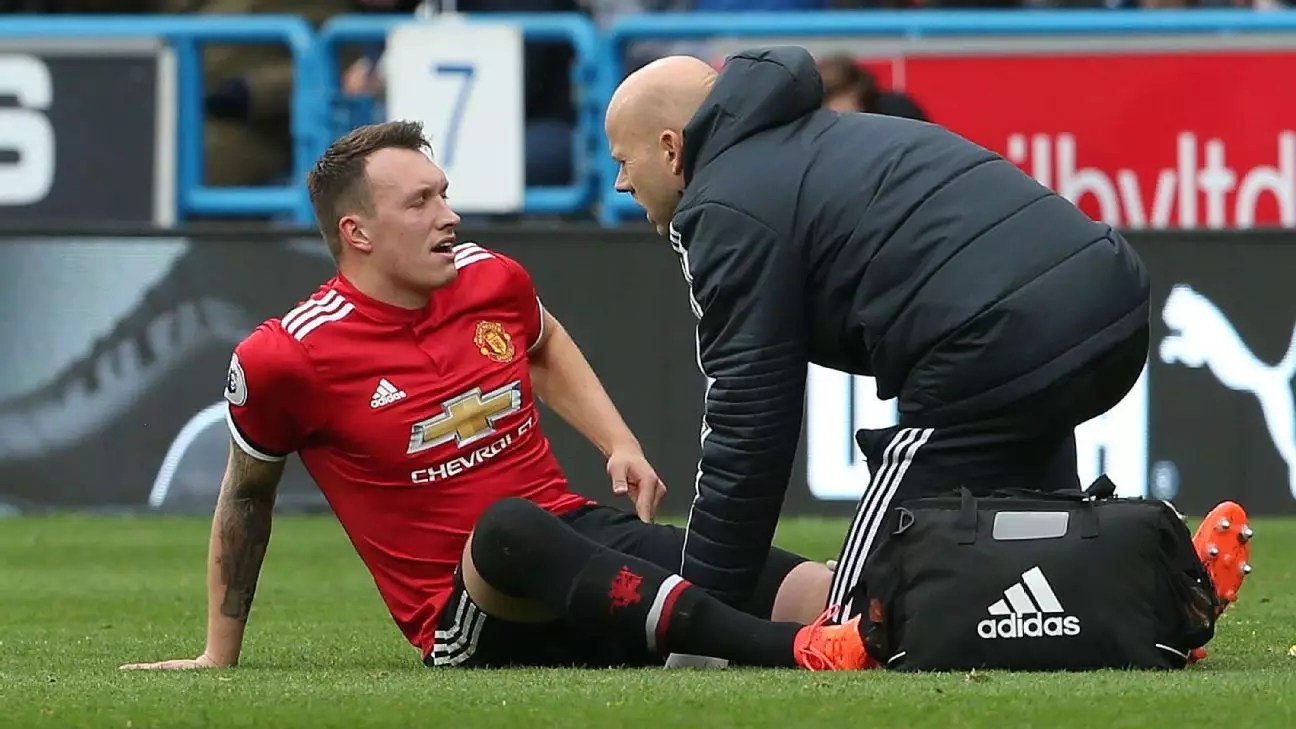In the high-stakes world of professional football, injuries can become more than just physical setbacks; they often morph into psychological burdens that challenge players on multiple fronts. Phil Jones, a former defender for Manchester United, has opened up about the emotional toll injuries took on his career, particularly at a club renowned for its unwavering expectations. His candid admission of feeling “embarrassed” serves as a poignant reminder that behind the fame and fortune, human vulnerabilities persist.
Jones’ trajectory at Old Trafford was marred by a continuous cycle of injuries, ultimately culminating in his retirement at 31. His story resonates significantly with current Manchester United players such as Mason Mount and Luke Shaw, both of whom are grappling with their own injury struggles. These recurring fitness issues not only hinder their contributions on the pitch but also expose them to the harsh scrutiny of fans and media, and in this, Jones expresses a relatable empathy.
The Cost of High-Profile Transfers
Mount’s and Shaw’s stories are more than just individual experiences; they are indicative of a larger issue surrounding high-profile transfers in football. Mount arrived at United in 2022 for a staggering £55 million, and his inability to participate in games has resulted in an astonishing tally of 51 missed matches since his arrival from Chelsea. Likewise, Shaw, once a £27 million signing, has actually missed more matches than he has played in his tenure with the club.
This juxtaposition raises critical questions about the pressures of living up to financial expectations in sports. The valuation of talent often obscures the human element of resilience and physical capability. It might be easy to forget that these athletes are not merely investments but individuals with limitations that can sometimes lead to career-altering setbacks.
The Role of Social Media and Public Perception
The impact of social media, as highlighted by Jones, amplifies the emotional turmoil faced by these players. With the rise of online platforms, every aspect of a player’s life comes under public scrutiny, especially during injury recovery. Shaw, for example, faced backlash for participating in the Euro 2024 despite his struggles with injuries, creating a narrative that complicates the player-fan relationship. It becomes a vicious cycle: the more players are criticized for their unavailability, the more isolated they may feel from the very supporters that once cheered them on.
In a society quick to judge, it is essential to remind ourselves that injuries do not define a player’s dedication or talent. Jones advises that players must prioritize their well-being above external expectations and influence from medical staff. His emphasis on allowing players the time to return only when they feel entirely ready is a crucial perspective. After all, rushing back could jeopardize not only a player’s career but also their overall mental health.
The Silent Sympathy in the Sport
Jones’ reflections illuminate the often-overlooked psychological aspects of professional sports. They reveal an empathy for Mount and Shaw that transcends mere words; it shows a camaraderie borne out of shared experiences. It is a reminder that even amidst the glitz and glamour of football’s grandest stage, vulnerability exists. Ultimately, the road to recovery is as much about mental resilience as it is about physical rehabilitation, and acknowledging this reality could significantly reshape how we perceive athletes during their toughest times.


Leave a Reply